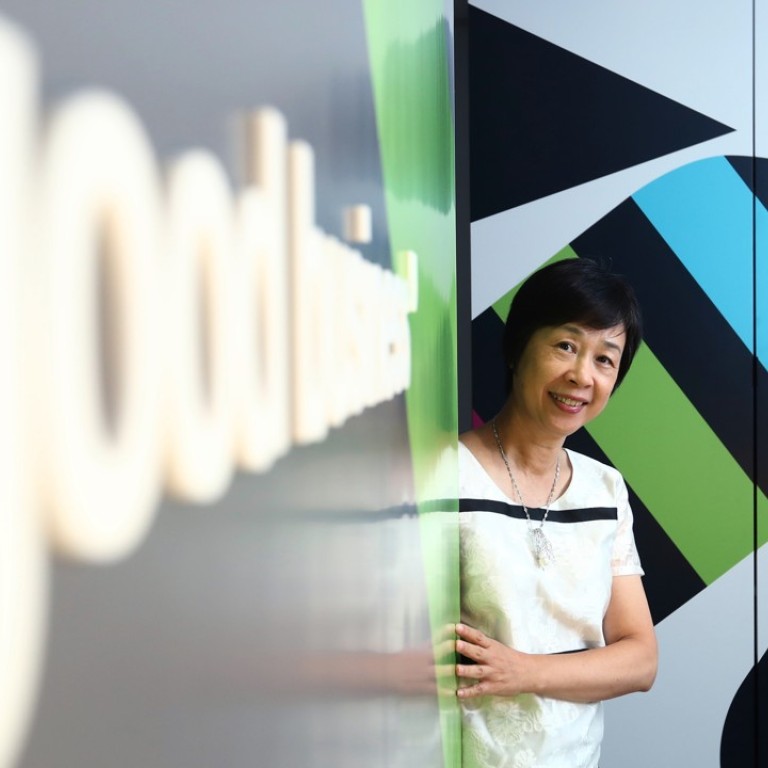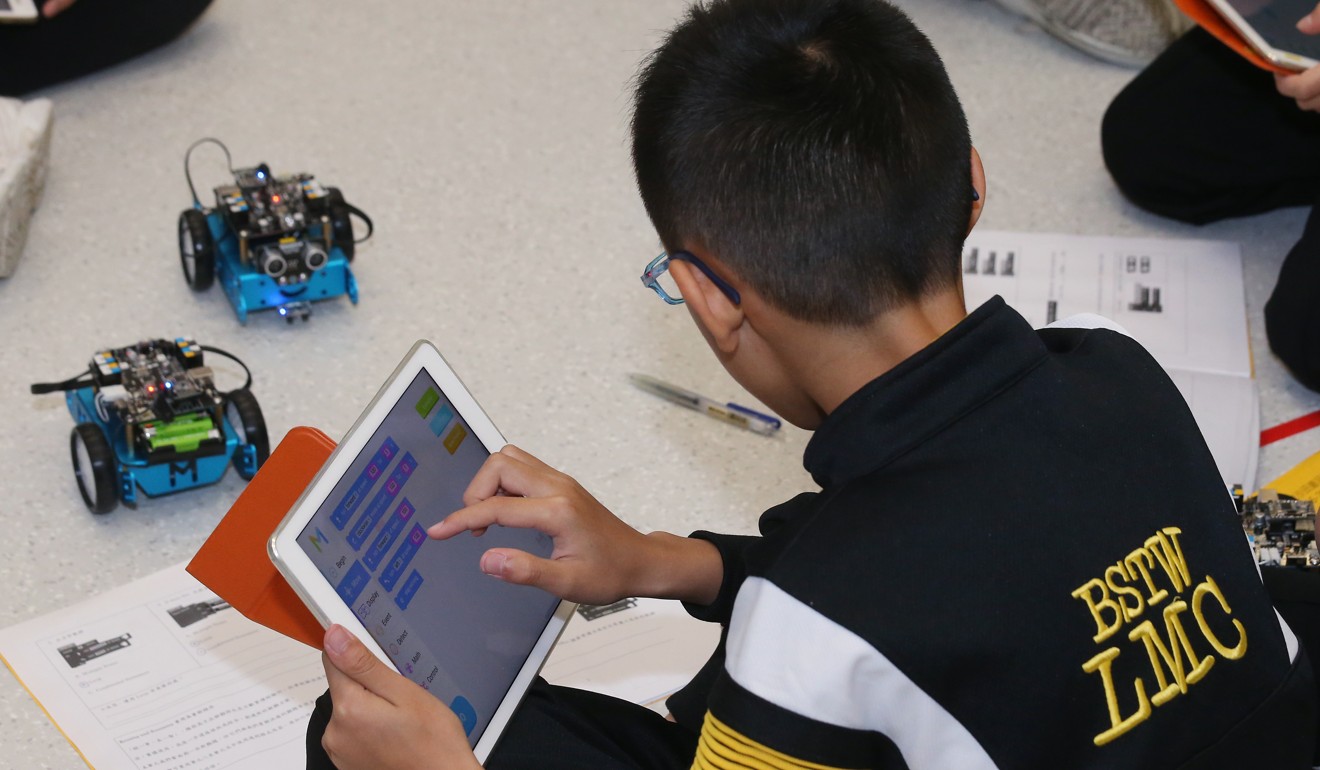
Jobs at IBM? Skills training programme P-Tech to launch in Hong Kong schools and could provide graduates with job opportunities at tech giant
Free five-year course, which will award graduates an associate degree and put them first in line for jobs at tech giant, awaits Education Bureau nod
Multinational company IBM wants to bring a skills training programme to Hong Kong schools which will equip pupils as young as 15 with technology sector know-how while remaining in mainstream education.
If launched, the five-year programme, which would award graduates an associate degree and put them first in line for positions at the tech giant, could be a potential game changer with industries complaining of local students starting job-specific training much later than their overseas counterparts.
“The latest technology, like artificial intelligence, data analytics … changes the world and the future of jobs. These ‘new collar’ jobs call for a new approach in education,” Mary Law Wai-oi, head of corporate citizenship at IBM Hong Kong, said.

Therefore, she said IBM was exploring the possibility of bringing its P-TECH model to Hong Kong.
First launched in 2011 in New York, P-TECH, which stands for Pathways in Technology Early College High School, is a five- to six-year partnership between secondary schools, tertiary institutions and industries for students to acquire skills needed for an entry-level position.
The programme, which is free for students to enrol in, has since been extended to more than 100 schools in the US and overseas, including Taiwan and most recently, Singapore. Besides IBM, other companies have also joined the corporate social responsibility initiative, including Fujitsu and Swarovski.
IBM’s new AI supercomputer can argue with humans
“A lot of [graduates] do not have enough of the skills that the industries need,” Law noted.
Under the P-TECH model, students remain in their secondary schools, which a liaison, an employee of the industry partner, works with to identify skills needed in the sector and jointly develop the curriculum. After completing secondary education, students enter a tertiary institution to continue the programme. They also get guidance from mentors and paid internships with industry partners.
Unlike in the US where there is more variation in school curricula, Hong Kong public schools mostly follow a Diploma of Secondary Education (DSE) system, which culminates in a public exam at the end of Secondary Six.
But Law said the P-TECH model could still work within the current system with adjustments.
Professor Stephen Chiu Wing-kai, chair professor of Education University’s department of social sciences, believed the programme would encourage students interested in pursuing skills training to do so at a younger age.
Currently, most students stay in mainstream schools for more academic education until Secondary Six, when they sit for the DSE exam for a chance to enter university. Those switching to the vocational track mostly do so after turning 17 and at the tertiary level. In Switzerland and Singapore, about two-thirds of youngsters swap to vocational training at age 16.

There is the option for students who have completed Secondary Three to take a diploma programme at the Vocational Training Council in Hong Kong, but with them having to forgo the DSE, the city’s main college entrance exam, the path is not very attractive with less than 5 per cent of each cohort choosing this option.
While the DSE also offers applied learning subjects, such as image design and aviation studies, they have a low take-up rate of between 3,772 and 5,428 from 2012 to last year, out of more than 60,000 candidates.
Chiu said Hong Kong society still placed a lot of value on getting into university, with a big difference in early income with and without a degree, hence it was difficult to expect students to switch to a vocational path during secondary education.
Moreover, candidates of DSE applied learning subjects can only score a maximum grade of 4, compared with the top mark of 5** for academic subjects, and the former is not accepted by many university courses for admission.
Future of travel: new Beijing airport embraces facial recognition tech
Chiu believed the P-TECH programme could work in Hong Kong if it could be packaged into a “premium” applied learning subject with a longer study period of three years compared with just two years for such subjects currently. In the new system, the highest grade attainable could also be enhanced to 5.
“Because IBM is well known in the industry, universities offering computer studies programmes are more likely to recognise the courses,” he said.
“Having a possible exit point into degree programmes after the first three years of P-TECH education in secondary school for students who might not be content with an associate degree also gives them an option to enter university,” he said, with the city’s degree-conscious parents and students more willing to embrace such a system.

For the coming school year, senior secondary students can take a new applied learning subject in railway studies supported by the MTR Academy, the rail giant’s training and research wing.
Benny Hui Kwai-ping, who earned a higher diploma in information technology for business at the Institute of Vocational Education in Sha Tin, said the programme was attractive with IBM being among the top companies in the industry.
Meet Hong Kong’s best high school student … ever
“It will be good to have mentors guiding you,” he said. “After I completed the Certificate of Education Examination under the old education system after Secondary Five, I was a bit lost as to what IT fields to pursue despite my passion for the field from a young age.”
Fortunately for Hui, by chance, he met an inspiring instructor at the institute, who eventually helped him find a major suitable for him and he now has a steady job.
Law noted that five public secondary schools as well as a tertiary institution and three industry partners in Hong Kong had expressed interest in the project, which could start soon if the Education Bureau approves it.

